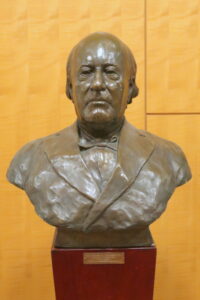Overregulating Legal Education
Nothing is more important to us at Marquette University Law School than preparing students for the practice of law. Legal education is our mission, and we work every day to serve it. Whether through teaching in fundamental subject areas, responding to new developments in the law, connecting students with the profession, or all of the myriad ways that we encourage the growth of the whole person, student development is our North Star. This is no small project: As all Marquette law students and Marquette lawyers know, the law is ever increasing in its scope and complexity, and the knowledge, skills, and values required for practice are substantial. We would like to do more; the three years we have with students are chock-full.
One way that Marquette Law School contributes to students’ practice readiness is through our program of experiential education, including our workshops, field placements, and clinics. We work hard at these curricular offerings and are proud of our program, including the fact that Marquette law students frequently exceed the current requirement that they take 6 credits of experiential classes.
So I would like to outline why I have submitted comments to our accreditor, at the American Bar Association, vigorously objecting to the proposal to mandate a doubling of the number of experiential-learning credits that each law student would be required to earn. The accreditor has not provided a sufficient reason for mandating such a substantial and costly revision of the upper-level curriculum of law schools—especially considering that the impact on other parts of law schools’ missions could be significant.
Here is an excerpt from the beginning of my letter concerning the revisions that the accreditor has proposed:
. . . . The proposed revisions to the Standards, doubling to 12 the number of experiential-learning credits that each law student must earn and therefore that every law school must provide to every student, should be withdrawn. The basis for this conclusion should not be mistaken. Marquette University Law School shares the widespread view that simulations, clinics, and field placements are valuable in legal education. Indeed, many of our law students routinely exceed the requirements of the current Standards. Marquette Law School works hard at and takes great pride in its experiential program, whose contours and features serve our communities impressively.
Yet the Council’s proposal would mandate a startling redirection of resources. Given the integrated nature of a program of legal education, the proposal would constitute an unprecedented invasion into the upper-level curricula of law schools, diminish substantially the schools’ appropriate autonomy, and impair their ability to innovate and to adapt their programs to local needs and institutional missions—all at a time of other extraordinary pressures on legal education. More succinctly and concretely: The proposal ignores the curricular tradeoffs that will necessarily result for schools and students and dismisses the likely financial costs of the new requirements.
The proposal’s apparent general animating philosophy—which has scant regard for the precept that accreditation standards are intended to establish minimum requirements for “adequate” education while protecting each school’s leading role in defining its own educational program—is regrettable enough. More specifically objectionable is that the proposal to double the current minimum requirement of experiential-learning credits lacks adequate evidentiary support. Valuable though experiential education is, a “more is better” approach to its requirement is not adequately supported in the proposal—notwithstanding the observation that other, very different professions, with different educational pathways, have more experiential education. Given the weak evidentiary basis for increasing the number of mandatory experiential-learning credits, the absence of a rigorous (or really any) cost-benefit analysis should prompt the proposal’s withdrawal..
You can read the entire letter here.



 The Hon. Michael Y. Scudder, judge of the U.S. Court of Appeals for the Seventh Circuit, delivered this year’s Hallows Lecture, yesterday evening, to more than 200 individuals in Eckstein Hall’s Lubar Center. The lecture was exemplary.
The Hon. Michael Y. Scudder, judge of the U.S. Court of Appeals for the Seventh Circuit, delivered this year’s Hallows Lecture, yesterday evening, to more than 200 individuals in Eckstein Hall’s Lubar Center. The lecture was exemplary.